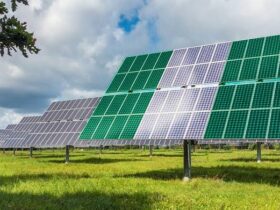Clean energy investments in Africa soared to a record high in 2023, reaching a staggering $600 million, marking a 50% increase compared to the previous year’s figures. This dramatic surge reflects the continent’s growing commitment to clean energy solutions and the increasing attractiveness of African cleantech startups to global investors.
Driving the Growth:
Several factors contributed to this impressive growth:
- Favorable Policy Environment: Many African governments have implemented supportive policies, including feed-in tariffs, renewable energy targets, and tax breaks, incentivizing investment in clean energy projects.
- Rising Energy Costs: With traditional energy sources becoming increasingly expensive, the cost-competitiveness of renewables is improving, making them a more attractive option for businesses and consumers.
- Technological Advancements: Innovations in solar, wind, and energy storage technologies are driving down costs and improving the performance of clean energy systems.
- Investor Confidence: Growing awareness of the potential of Africa’s clean energy market, coupled with successful exits by early investors, is attracting more capital to the sector.
Investment Breakdown:
The $600 million in investments were distributed across various clean energy sectors, with solar, wind, and mini-grids attracting the largest share of funding. Notably, investments in off-grid and decentralized solutions, which are crucial for providing energy access to rural communities, also saw significant growth.
Impact of the Investments:
This increased investment is already having a positive impact on the continent:
- Increased Renewable Energy Capacity: The additional funding is accelerating the development and deployment of renewable energy projects, leading to a significant increase in clean energy capacity across Africa.
- Job Creation: The clean energy sector is creating new green jobs, contributing to economic growth and development across the continent.
- Improved Energy Access: Investments in off-grid solutions are providing access to clean and reliable energy for millions of people who were previously unelectrified.
- Reduced Carbon Emissions: By transitioning to clean energy sources, Africa is contributing to the global fight against climate change and reducing its dependence on fossil fuels.
Challenges and Opportunities:
Despite the significant progress, several challenges need to be addressed to sustain this growth momentum:
- Lack of Access to Finance: Many clean energy startups still struggle to access the funding they need to scale their businesses.
- Infrastructure Gaps: Insufficient grid infrastructure in many African countries hinders the integration of renewable energy into the grid.
- Regulatory Uncertainty: Inconsistent and unclear regulations can create uncertainty for investors and limit investment flows.
However, these challenges also present opportunities for further development:
- Investing in innovative financing solutions: Blended finance, crowdfunding, and other innovative approaches can help bridge the funding gap for clean energy ventures.
- Developing distributed energy solutions: Mini-grids and off-grid solutions can provide reliable and affordable energy access to underserved communities, bypassing the need for grid expansion.
- Building capacity and expertise: Investing in education and training programs can help develop the workforce needed to support the growing clean energy sector.
Looking Ahead:
With continued investment, supportive policies, and technological advancements, Africa’s clean energy sector has the potential to become a global leader. This transition to clean energy will not only address the continent’s energy needs but also create a more sustainable and prosperous future for Africa and the world.
Author: Brian Oji



















Leave a Reply